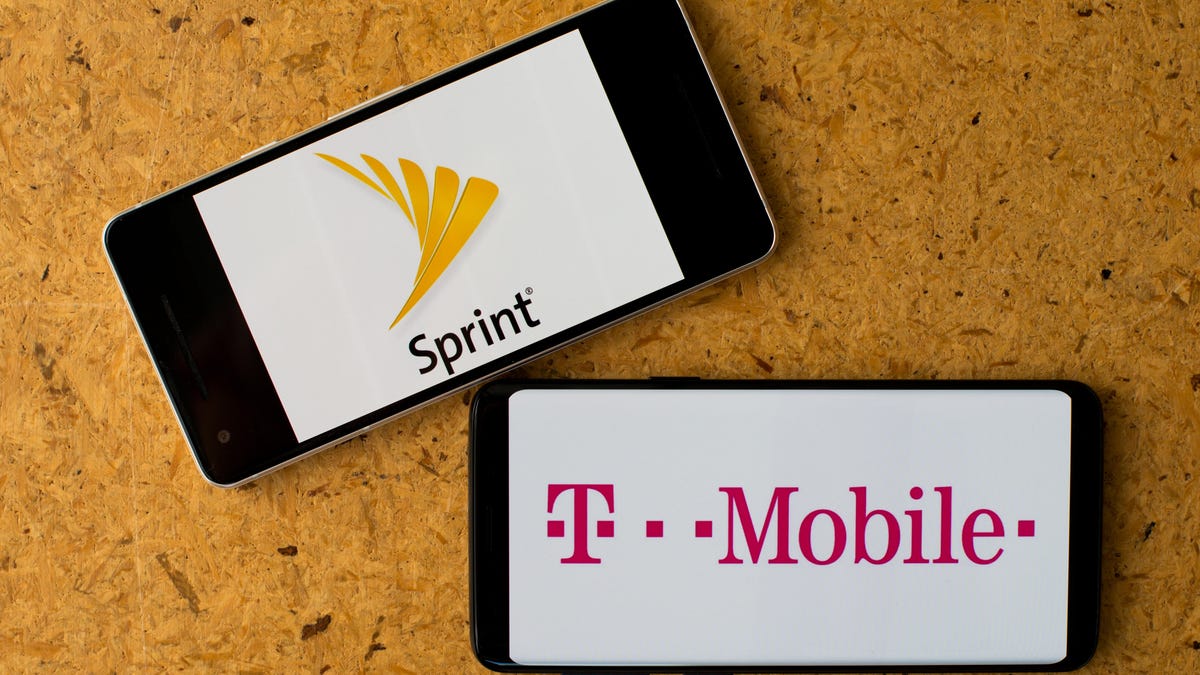T-Mobile merger nabs support from Texas, Nevada AGs as trial looms
T-Mobile inches two steps closer to getting its Sprint merger across the finish line.

The T-Mobile/Sprint deal is inching closer to completion.
T-Mobile's efforts to close its deal with Sprint are picking up steam ahead of a Dec. 9 trial date with opposing attorneys general. On Monday, the wireless carriers flipped one of the biggest states yet, with Texas attorney general Ken Paxton announcing that his office has "reached a settlement with T-Mobile resolving the state's antitrust claims against the proposed merger" and is no longer looking to block the deal. Nevada attorney general Aaron D. Ford announced his own deal later Monday.
In August, Texas joined the multistate lawsuit headed by the New York and California attorneys general against the deal. Even after the withdrawal of Texas and Nevada, though, the merger deal between Sprint and T-Mobile is still facing opposition from 14 attorneys general. The state of New York is leading the charge, but the lawsuit includes California, Connecticut, Hawaii, Maryland, Massachusetts, Michigan, Minnesota, Illinois, Virginia, Wisconsin, Oregon, the District of Columbia and Pennsylvania.
As part of its agreement with T-Mobile, Paxton says the deal he struck is designed to prevent what's referred to as the New T-Mobile from increasing wireless service prices on Texans for five years and commits the merged company to build out a 5G network throughout Texas, including rural areas, during the next six years.
"My office is responsible for protecting consumers and this settlement ensures that the New T-Mobile is not in a position to overcharge Texans for wireless service," Paxton said, "and at the same time, obligates the New T-Mobile to invest in a high-quality 5G network that will serve the needs of Texas' growing economy, or face stiff financial penalties.
Paxton said his office had joined the initial lawsuit to "protect Texans from unnecessary price hikes" and to ensure that no one, whether in urban and rural areas, would get stuck with substandard service.
Marcelo Claure, chair of Sprint, tweeted the Nevada news Monday.
"Big thank you to the @NevadaAG who also had a big announcement today on the @Sprint & T-Mobile merger," he said. "We're getting closer to making the new T-Mobile a reality and bringing amazing benefits to consumers everywhere!"
Ford said Nevada's settlement with T-Mobile and Sprint involves ensuring 5G will reach 83% of rural communities and 94% of the general population within six years. Mobile plans for the next six years will also be priced at $15 for 2GB of data and $25 for 5GB of data, T-Mobile committed -- and the data inclusion will be increased incrementally to almost double within four years.
"The New T-Mobile will make a significant investment to enhance service to our Native American Tribal communities, contribute to programs that enhance opportunities for minorities, women and small businesses," Ford added. The investments will total $30 million.
New York Attorney General Letitia James said in a statement that even in light of the Texas switch she still plans to bring the case to trial.
"Today's deal does not resolve the fundamental anticompetitive concerns at the core of this case -- that the megamerger of T-Mobile and Sprint will reduce competition in the mobile marketplace," James said.
"There is no doubt that this merger remains bad for consumers, bad for workers, and bad for innovation, which is why we remain committed to litigating this matter and look forward to the commencement of trial in less than two weeks."
Mississippi was the first to exit the suit back in October, when attorney general Jim Hood announced reaching an agreement with T-Mobile. Under the deal, the carrier will deploy a 5G network that provides 100Mbps speeds to 62% of the state's urban and rural population; cover 92% of the population and 88% of its rural population within six years of merging; and "limited price commitments."
Colorado also dropped out last month.
CNET's Marguerite Reardon contributed to this story.
Originally published Nov. 25, 7:53 a.m. PT.
Update, 8:55 a.m.: Added statement from New York attorney general; 1:12 p.m.: Adds Nevada exiting the suit; 2:23 p.m.: Adds Colorado dropping out in October.



